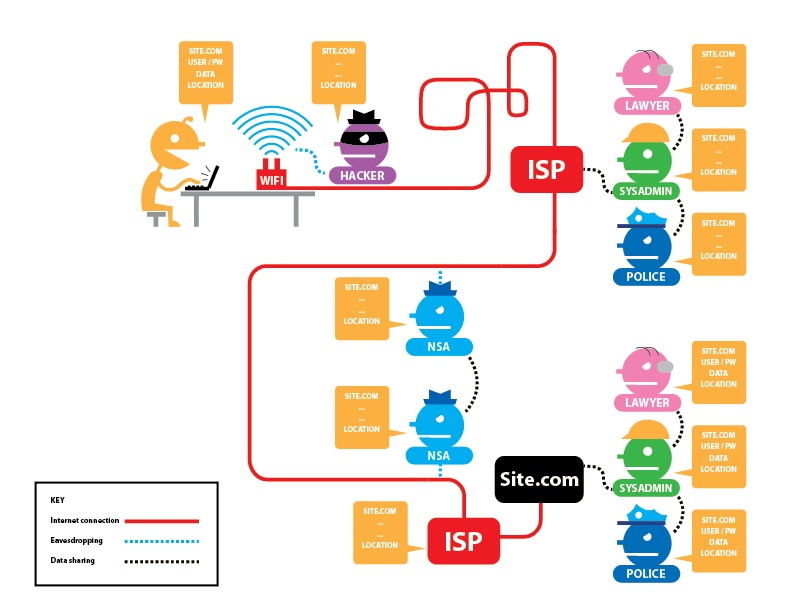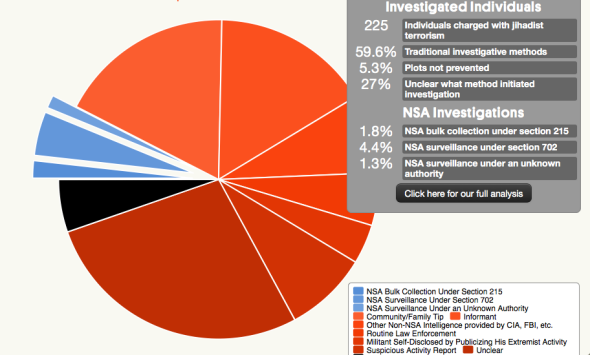The Australian government tackled the question of if national security concerns outweighed an individual’s right to privacy in December 2018. As other governments have before them, the Australian Parliament decided on the side of national security. They approved a bill that could require tech companies to provide backdoors or other access to encrypted communications to law enforcement. This is understandably concerning to individuals who view personal privacy as the most important right that they have.
Two Sides of the Same Argument
Both those who are for and those who are opposed to the recent bill are concerned about security. The government believes that national security and the ability to thwart criminals and terrorists who make use of encrypting programs and encrypted messages to communicate are of paramount concern. They argue that recent legislation in Australia gives the government and law enforcement agencies the tools that they need to keep people safe. They also emphasize the need for appropriate authority and oversight.
Individuals concerned about personal privacy argue that these new laws compromise the security of Australian citizens. The vagueness with which the bill has been written leaves the door open to uncontrolled abuse. As with other bills of this sort, many believe that it was rushed through the parliament without giving the public a chance to consult on the issue or to have a full idea of what the bill’s passing will mean for their personal security. The biggest issue is that Australian tech companies must create a massive backdoor that creates a gigantic liability for them and their customers.
The International Implications
Australia’s new laws will have an impact that will be felt around the world. This is because once Australia has the ability to gain access to the encrypted communications of its citizens, other nations of the world are going to want to have the same access. It becomes very difficult for a country like Australia to tell intelligence agencies in the United States or in the United Kingdom that they will not share the valuable information that they have with them. This is especially true in light of the fact that Australia, New Zealand, Canada, Britain, and the United States have agreed to share intelligence under the Five Eyes agreement.
Promises to Use Sensitive Material Responsibly
Whenever a bill like the one approved by Australia’s Parliament is enacted, the governments behind them always promise that they are going to be responsible actors. They say things like the information will be used responsibly, these new tools and new powers will not be used to spy on our citizens indiscriminately, and we will carefully guard and protect the information we find. However, sooner or later it comes to light that the government is using their new authority to gather information not only on the bad guys but also on their citizens.
Especially since 9/11, governments of the world have been vying for unfettered access to digital communications, saying that they need this access to fight off terrorism. However, the majority of communications that are intercepted or that are decrypted are used on a local level to fight crime. Inevitably, innocent individuals will have their information reviewed, and some will be wrongly accused because the government misinterprets the data they collect. And, even with these new powers, there are always cases where the government misses crucial information that they were supposed to be able to catch with their new surveillance powers.
The Impact on Australia’s Businesses
Tech companies in Australia are worried that this new bill will impact their ability to provide a complete service to their customers. Many people were attracted to tech companies in Australia because they knew that their private data was protected. They knew that the industry was insulated from needing to create backdoors. They also knew that law enforcement and others could not get access to their data.
Now, all of those guarantees are gone. Businesses operating with tech companies in Australia will be hard-pressed to believe the tech company when they say that they will protect their client’s personal information.
And here is the insidious thing about tech companies creating backdoors for law enforcement. If there is a backdoor, anyone who knows where to find it can get access to it. All backdoors are vulnerable to hacking.
A number of tech companies have worked alongside Australia’s government and have provided information needed to investigate, prevent, and even solve crimes. Apple submitted a challenge to Parliament’s idea that it was necessary to weaken encryption in law enforcement.
They said that in just five years they have processed more than 26,000 requests from the Australian government and law enforcement agencies. This was without intrusive laws permitting unprecedented surveillance power to the government.
Obviously, no one wants to see another 9/11. Everyone wants the governments of the world to have the tools that they need to keep people safe. At the same time, people realize that having personal privacy is essential for freedom. When the government has the ability to monitor, analyze, and track their citizen’s private communications, it is questionable as to whether or not members of the general public can consider themselves truly free.
What Options Do You Have?
Some may argue that they have no options but to accept added surveillance by the government. That is not true. Many Australians have opted to use a virtual private network (VPN) located in countries that do not force them to reveal their client’s data to law enforcement or to other governmental agencies. Australian citizens looking to protect their privacy should research some of these products. While a lot of people still question the legality of VPNs, it’s important to know that companies operating outside of Australia aren’t subject to local laws.
There is no reason to believe that Australia, the United States, the UK, Canada, or any other government will ever give up the surveillance powers that they have. It is up to individuals citizens to take their privacy seriously and protect themselves from unwanted surveillance.
How do you feel about the national security versus personal privacy debate? Have you taken steps to protect your private communications? If so, we would love to hear about the options that have worked for you in the comment section below.




